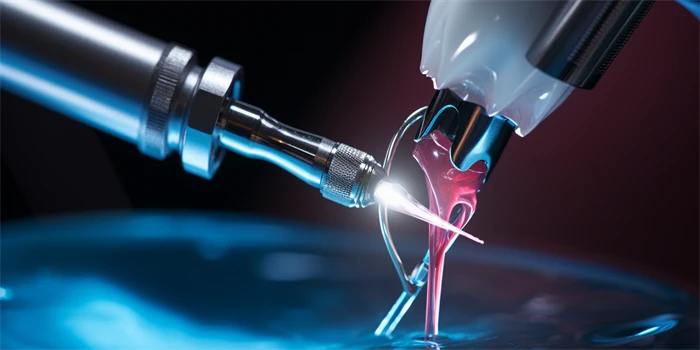When it comes to dental health, many individuals face challenges and concerns that go beyond routine maintenance. Dental issues such as missing teeth, severe decay, misalignment, or advanced periodontal disease can significantly affect both oral function and overall well-being. In such cases, a comprehensive approach known as total dental reconstruction offers a solution. Through this transformative procedure, patients can regain their oral health and confidence. This article will delve into the various aspects of total dental reconstruction, covering its benefits, process, recovery, cost, and more.

The Benefits of Total Dental Reconstruction
Total dental reconstruction offers a myriad of benefits to individuals facing complex dental issues. Firstly, it restores oral function, allowing patients to chew, speak, and smile with ease. By replacing missing teeth or correcting misalignment, total dental reconstruction improves overall oral health, reducing the risk of future complications. Additionally, it enhances aesthetics, providing individuals with a revitalized and natural-looking smile. With the restoration of dental health and appearance, total dental reconstruction can significantly boost self-confidence and improve overall quality of life.
Furthermore, total dental reconstruction can address underlying oral health issues. It helps resolve problems such as periodontal disease, decay, or infection, which, if left untreated, could lead to more severe complications. By eliminating these issues, total dental reconstruction promotes long-term oral health and prevents further damage.
Finally, total dental reconstruction offers a durable and long-lasting solution. With advancements in dental technology and materials, the reconstructed teeth can provide exceptional functionality and longevity. This allows patients to enjoy their new smiles for many years to come.
The Process of Total Dental Reconstruction
The process of total dental reconstruction typically involves several stages to ensure a comprehensive and successful outcome. The initial step involves a thorough examination by a dental professional, who will evaluate the patient's oral health, review dental records, and discuss the desired outcome. This stage also includes taking X-rays and impressions to create a personalized treatment plan.
The next phase involves any necessary pre-treatments, such as periodontal therapy, root canal treatment, or extractions. These procedures aim to address underlying oral health issues and create a suitable foundation for the reconstruction process.
Once the teeth and gums are in optimal condition, the actual reconstruction begins. This phase may include procedures like dental implants, crowns, bridges, dentures, or orthodontic treatments. Depending on the complexity of the case, the reconstruction process may take several visits spread over a few months.
After the reconstruction is complete, a period of healing and adjustment follows. The dentist will provide instructions for post-reconstruction care, including oral hygiene practices and dietary restrictions. Regular follow-up appointments will be scheduled to monitor the progress and make any necessary adjustments.
Recovery and Aftercare
Recovery from total dental reconstruction varies depending on the procedures performed and the individual's overall health. Some individuals may experience mild discomfort, swelling, or sensitivity following the treatment, which can be managed with over-the-counter pain medication or prescribed by the dentist.
During the healing process, it is essential to adhere to the dentist's aftercare instructions. This typically involves maintaining good oral hygiene by brushing and flossing regularly and following any dietary restrictions given. Attending follow-up appointments is crucial to monitor the progress and ensure the success of the reconstruction.
It is important to note that the time required for complete recovery may vary from person to person. While some individuals may resume regular activities within a few days, others may require a few weeks for their mouth to fully heal and adapt to the reconstructed teeth.
The Investment: Pricing and Cost Range
The cost of total dental reconstruction can vary significantly, depending on several factors, including the complexity of the case, geographical location, and the chosen dental professional. It is advisable to consult with a dentist to obtain an accurate estimate tailored to individual needs.
On average, total dental reconstruction can cost anywhere between $5,000 and $50,000. This wide price range takes into account the various procedures involved, such as dental implants, crowns, bridges, or orthodontic treatments, and the number of teeth that require reconstruction.
It is important to consider total dental reconstruction as a long-term investment in oral health and overall well-being. While the upfront cost may seem significant, the benefits and improved quality of life obtained through a restored smile are invaluable.
Frequently Asked Questions
1. How long does total dental reconstruction take?
The duration of total dental reconstruction varies depending on the complexity of the case. It can range from a few months to over a year, with multiple stages and visits involved.
2. Is total dental reconstruction covered by insurance?
Insurance coverage for total dental reconstruction varies among providers and policies. It is recommended to consult with insurance providers and the dental professional to understand the extent of coverage.
3. Are there any age restrictions for total dental reconstruction?
Total dental reconstruction is suitable for individuals of various age groups. However, it is important to consult with a dental professional to assess any potential risks or limitations based on age or overall health conditions.
4. Will total dental reconstruction feel natural?
With advancements in dental technology and materials, the reconstructed teeth are designed to feel and function as naturally as possible. Patients may experience an adjustment period, but they will eventually adapt to their new dental prosthetics.
5. Is total dental reconstruction a permanent solution?
Total dental reconstruction offers a long-lasting solution; however, individual factors such as oral hygiene practices, lifestyle habits, and regular dental care will impact the longevity of the reconstructed teeth. With proper care and maintenance, the results of total dental reconstruction can endure for many years.
In conclusion, total dental reconstruction provides a comprehensive solution to individuals facing complex dental challenges. By addressing oral health issues, restoring function, and improving aesthetics, this transformative procedure offers a renewed smile and enhanced quality of life. With proper care and maintenance, the investment in total dental reconstruction can yield long-lasting results, making it an invaluable choice for those seeking dental rejuvenation.



